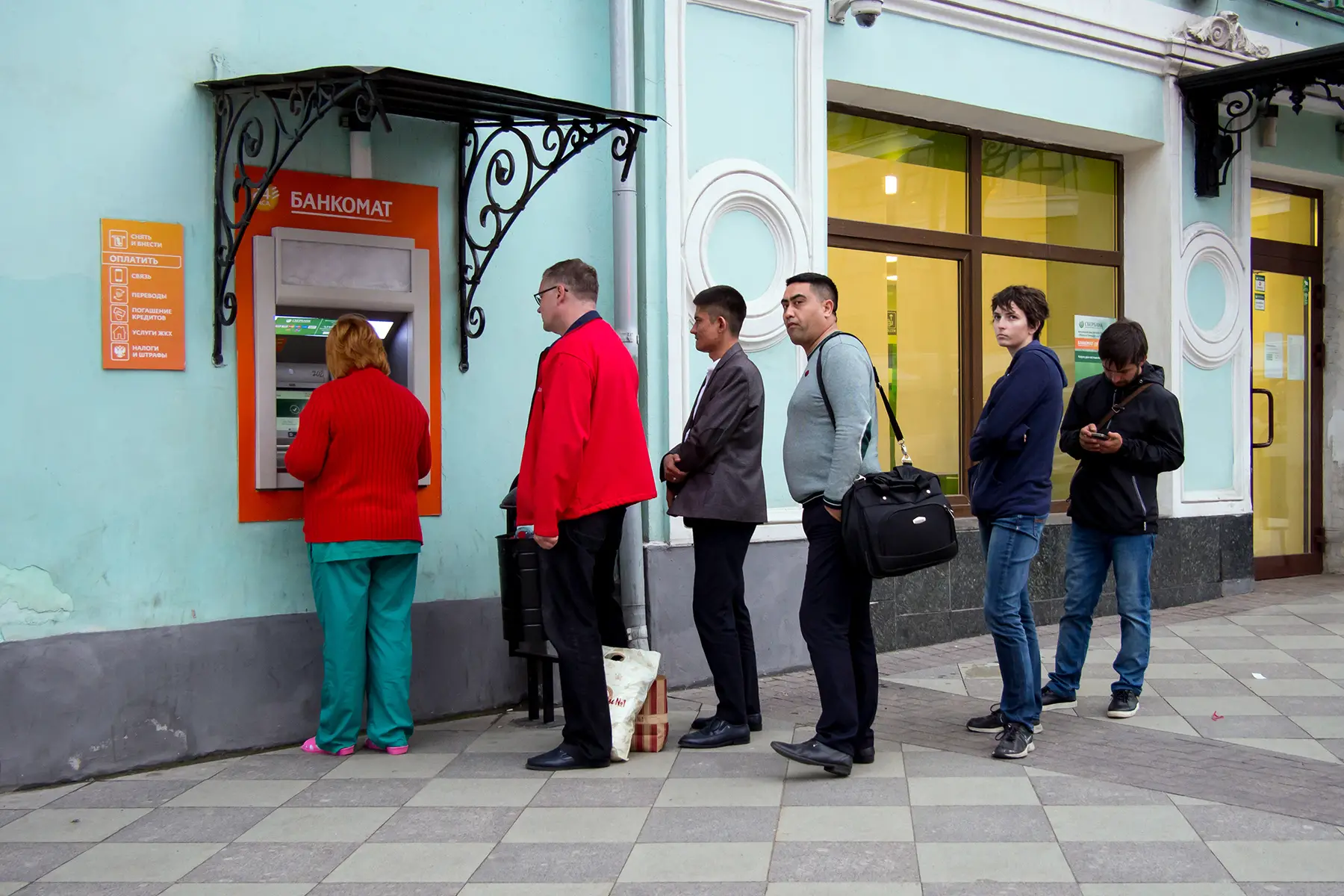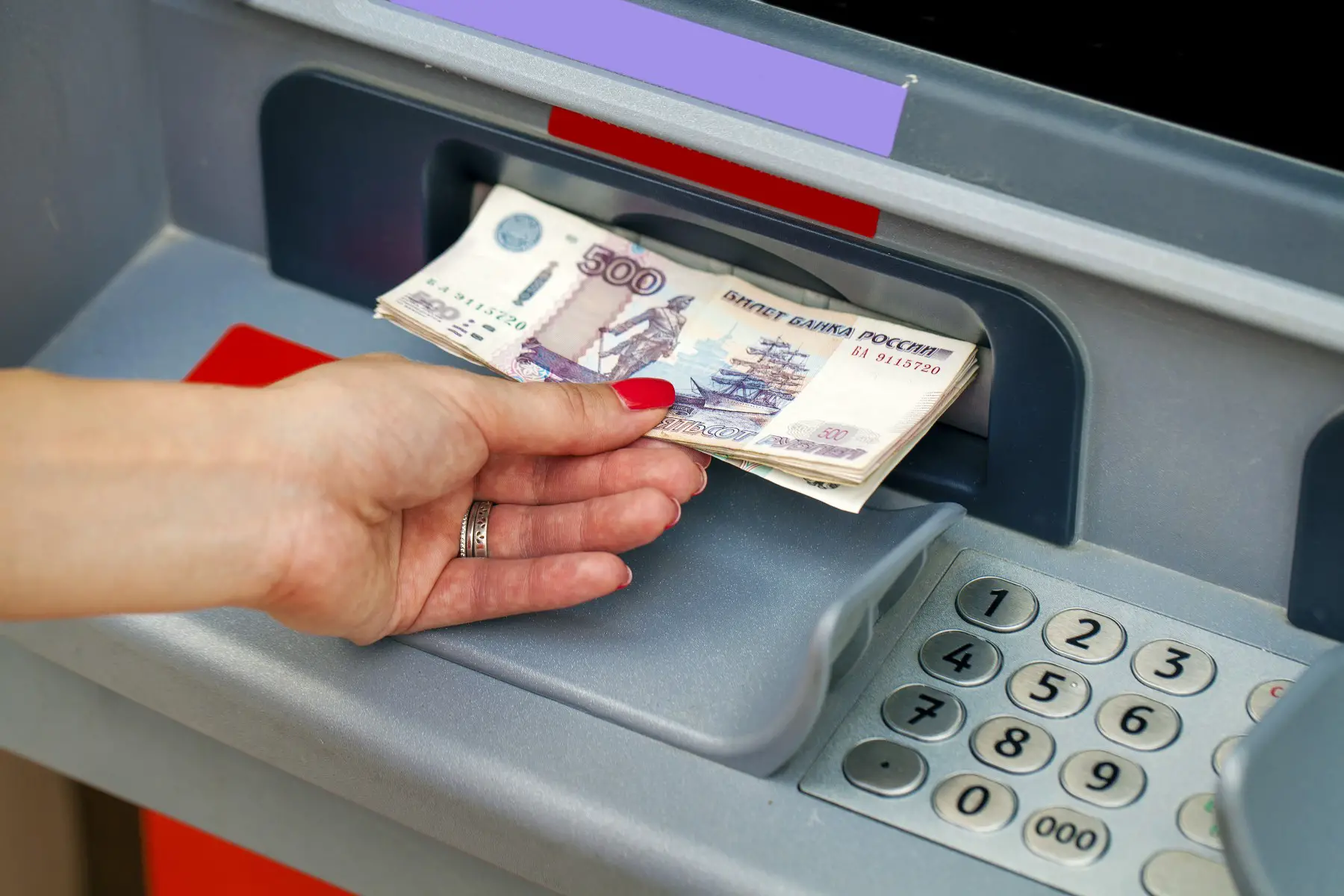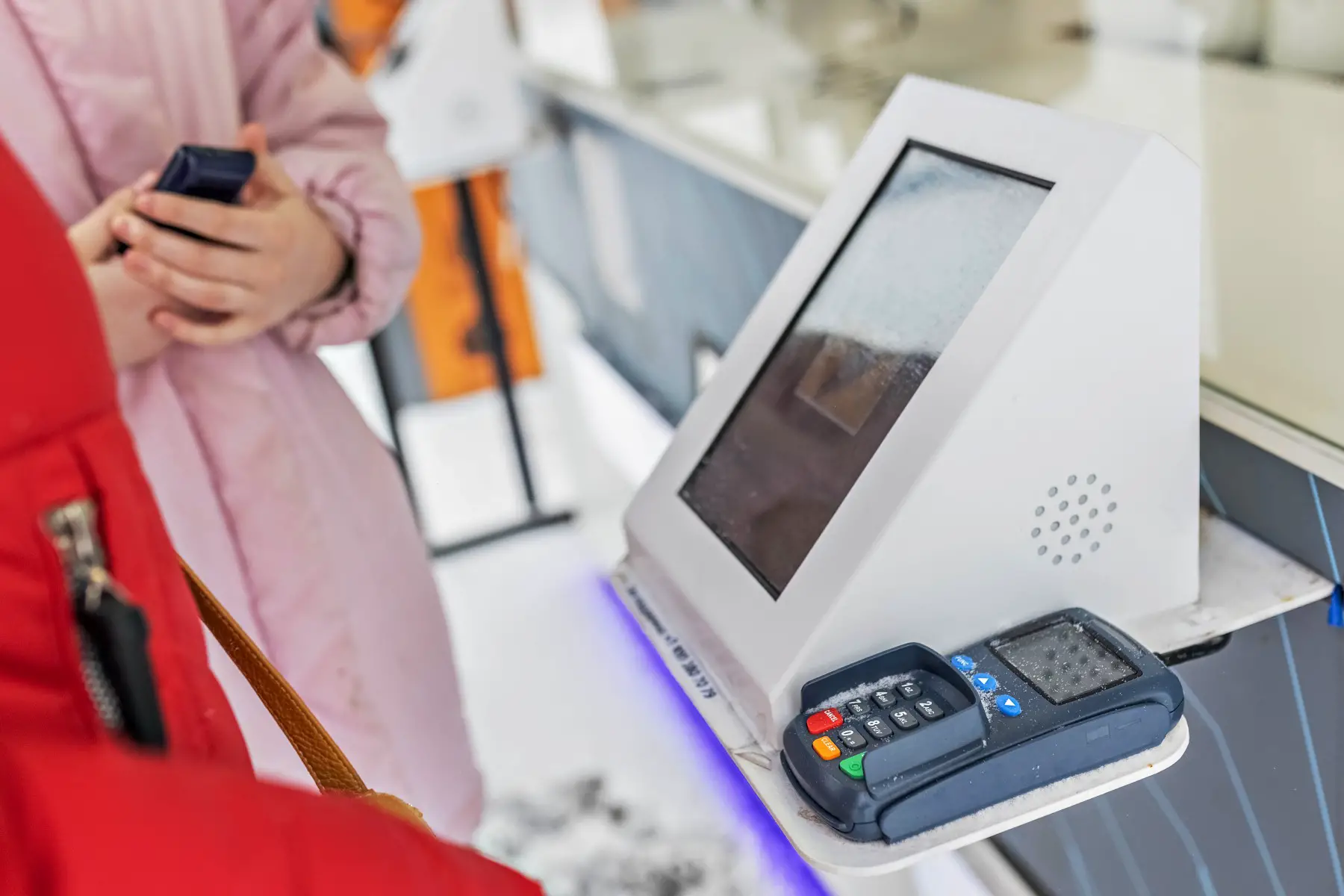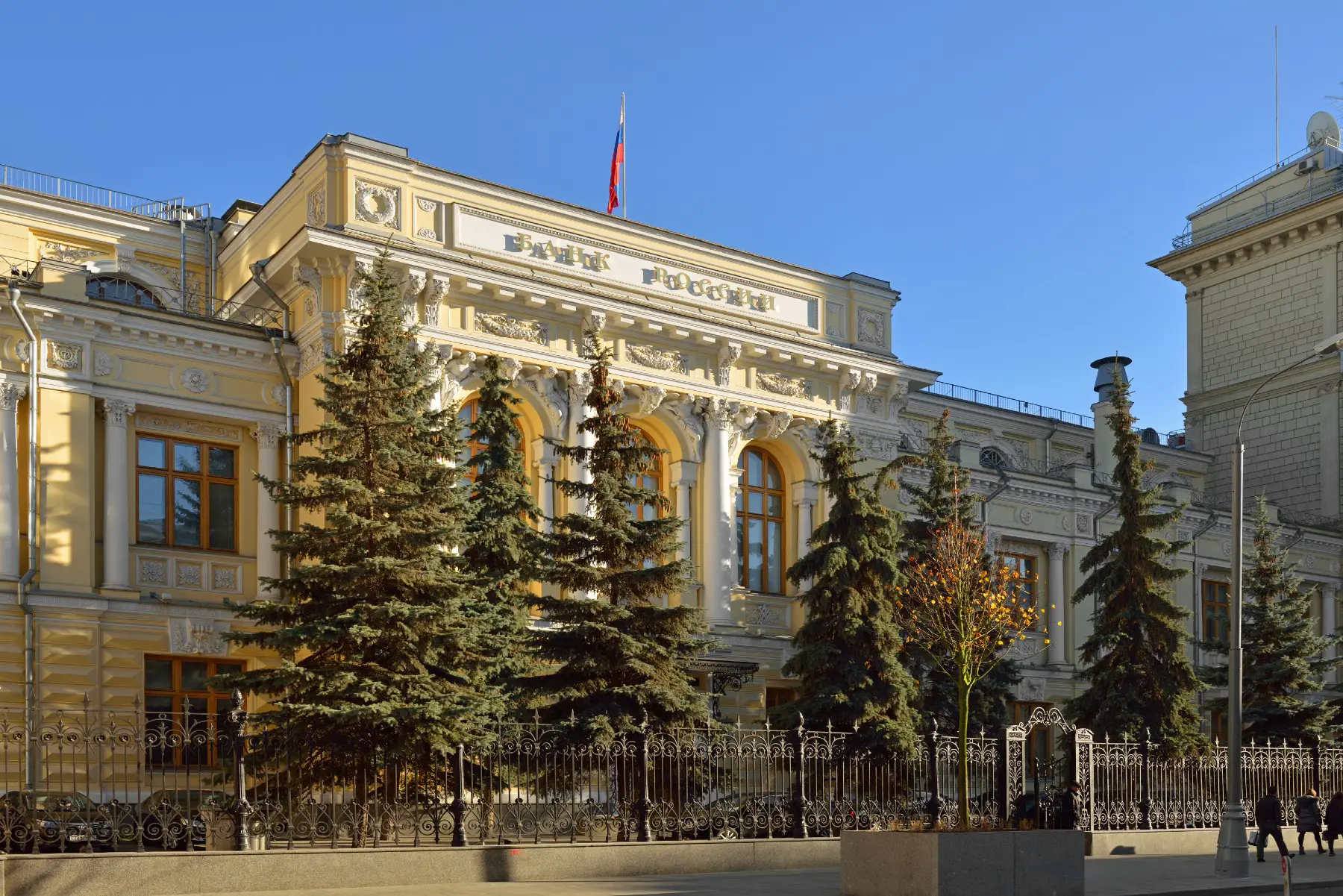Important notice from the Editor in Chief
Maintaining our Russian site is a delicate matter during the war. We have chosen to keep its content online to help our readers, but we cannot ensure that it is accurate and up to date. Our team endeavors to strike the right balance between giving information to those who need it, and respecting the gravity of the situation.
When you first arrive in Russia, you might be able to get by using your foreign bank card, but fees can quickly add up. As such, opening a Russian bank account will make it easier and more cost-efficient to send and receive money. In the longer term, it’ll also help you to access other financial products such as credit cards and mortgages. This guide on how to open a bank account in Russia includes advice on the following:
- Banking in Russia
- Do you need a bank account in Russia?
- Before you open a bank account in Russia
- Types of Russian bank accounts
- How to open a Russian bank account as an expat
- Opening a corporate account in Russia
- Choosing a Russian bank account
- Banking services in Russia
- Managing your Russian bank account
- Useful resources
Banking in Russia
There are around 350 banks in Russia, comprising of a mixture of commercial banks, local banks, and the state-owned Sberbank. The Bank of Russia oversees the Russian banking system.
Banks in Russia have made significant technological strides in the last decade. Contactless payments and app-based banking have become more common, especially in cities. Despite this, more rural areas of Russia still rely on cash as their primary form of payment, and many residents don’t have bank accounts. You can find out more in our guide to banking in Russia.
Do you need a bank account in Russia?
If you’re living and working in Russia, you’ll need to get a Russian bank account to receive your salary and make day-to-day payments such as utility bills.

Should you decide to stay in Russia for the long term and buy a property, you may find it easier to get a mortgage if you have an existing relationship with a Russian bank.
Before you open a bank account in Russia
It’s best to apply for a Russian bank account soon after you arrive.
The majority of Russian bank accounts are opened in-branch. That said, you can also apply online with the bigger providers. This means that technically you could apply for an account before you arrive in Russia.

If you take this route, be careful to check the bank’s terms and conditions. The bank may require you to sign application documents and provide a signature sample in person (to be used to verify your identity if you lose your card). If this is the case, you’ll need to attend a bank branch yourself, so it may be better to wait until you’ve arrived in Russia before starting the process.
Types of Russian bank accounts
There is a range of current accounts available in Russia to suit all lifestyles. Major banks offer a handful of options for you to choose from. These can include free basic accounts that offer fee-free withdrawals from your provider’s own ATMs but charge for other services, to more substantial fee-paying accounts.
These accounts tend to come with additional perks, including the ability to transfer money without charges, preferential savings rates, credit card options, and cashback incentives with certain retailers. Some providers also offer digital-only accounts for making online purchases and contactless payments with your smartphone.

It’s possible to have current accounts in different currencies in Russia. For example, you can have a Russian bank account in rubles for your everyday spending and withdrawing cash, and a second account in dollars, euros or pounds to transfer money home.
Banks in Russia also offer savings accounts, which allow you to earn interest on your money. As with many countries, interest rates are currently very low, but you may qualify for a bonus rate if you have other products such as a current account or credit card with the provider in question.
How to open a Russian bank account as an expat
You’ll usually need a Russian residence permit to open a bank account. Some Russian banks allow non-residents or people with temporary residency status to apply for certain accounts, but this varies between providers.
In some cases, your employer will set up a basic Russian bank account on your behalf to pay your salary. It’s worth finding out whether this is the case before setting up an account yourself. If you’re setting up your own account, you’ll need to be registered at a Russian address.
The documentation you’ll need to provide when opening a bank account varies between providers. For some accounts, you’ll only need your residence permit and proof of address. For others, you’ll also need evidence of employment, which usually comes in the form of a letter from your employer.

Once you’ve set up the account you’ll be able to manage most things online, but some services may require you to attend a branch. With this in mind, you should consider signing up for a provider with a branch close to your home or office.
Mobile banking in Russia
Russian banks have made significant strides with technology in recent years. Major banks in Russia have online banking services and banking apps. These will allow you to conduct a variety of everyday tasks without visiting a bank. Online banking offers services such as internal and foreign currency transfers, bill payments, standing orders, and electronic statements.
When opening an account, the bank will issue you a user ID number and password to set up online banking. Most banks in Russia also provide telephone banking services, and some offer SMS banking, which allows you to top up your mobile phone credit and transfer money.
Opening a corporate account in Russia
If you start a company in Russia, you’ll be required to set up a Russian bank account to manage payments.

Registration requirements to set up a corporate account in Russia are quite stringent. When applying for a corporate account, you’ll need to provide the usual documentation such as your residence permit and the application form. In addition, you’ll will also need a statement from the tax authorities. This is to confirm you are allowed to carry out business activities in Russia.
Banks in Russia may offer a range of corporate account options, from those suited to smaller sole traders and freelancers to those designed for lager companies.
Choosing a Russian bank account
There are hundreds of banks in Russia, so you’ll need to weigh which providers offer the best service, value for money, and convenience.
Banking with a large provider or multi-national institution will give you the confidence that you’ll be able to access your money more easily, as well as choose the type of bank account that suits you – be it for preferential rates on additional products such as credit cards or mortgages, or for the cost of sending money both locally and internationally.
Banking services in Russia
Banks in Russia offer a range of additional services beyond current and savings accounts.
Credit cards: Banks provide a range of credit cards, with incentives including air miles, cashback, and shopping discounts available. Some credit cards are fee-free, but others come with an annual charge in exchange for extra benefits. You’ll usually need to have a bank account with the provider in question to get a credit card.

Loans: Most major Russian banks offer loans to expats who have permanent residency in Russia. How much you can borrow will depend on the purpose of the loan and your annual earnings.
Mortgages: Many of the largest banks offer mortgages to expats looking to buy a property in Russia. Expats will generally need a deposit of at least 20% of the property’s price.
Insurance: Banks offer a wide range of insurance products, from income protection products to health insurance plans.
International money transfers in Russia
Most banks in Russia offer transfer services. If you make an international money transfer, your recipient usually receives the funds within a couple of business days. You may need to pay a fee of between 1% and 2% of the amount you’re transferring. Some banks don’t allow customers to make international transfers online. In that case, you’ll need to go to a branch with proof of identity and the recipient’s details.
If you’re thinking of transferring money to your home country on a regular basis, open an account in that currency alongside your Russian bank account. You can take care of this via the Russian or Moscow International Bank or one of the alternatives. Not only will this cut down on fees, but it also means you can avoid bad exchange rates.
Managing your Russian bank account
You will generally be able to manage your Russian bank account in-branch, by telephone, or online using internet banking or your provider’s banking app.

Bank branch opening hours in Russia vary, with larger banks more likely to operate longer hours. If you bank with a larger organization, branch opening hours tend to be around 9:00–17:00 or 18:00 on a weekday and from 9:00 until around 15:00 on a Saturday.
You can typically access basic account services such as checking your balance and making payments via telephone banking and online. Larger providers offer translation services into English. However, you’ll likely have to visit your local bank branch to deal with more complicated issues. Russian banks usually send account statements by post, although you can choose to receive them online instead.





